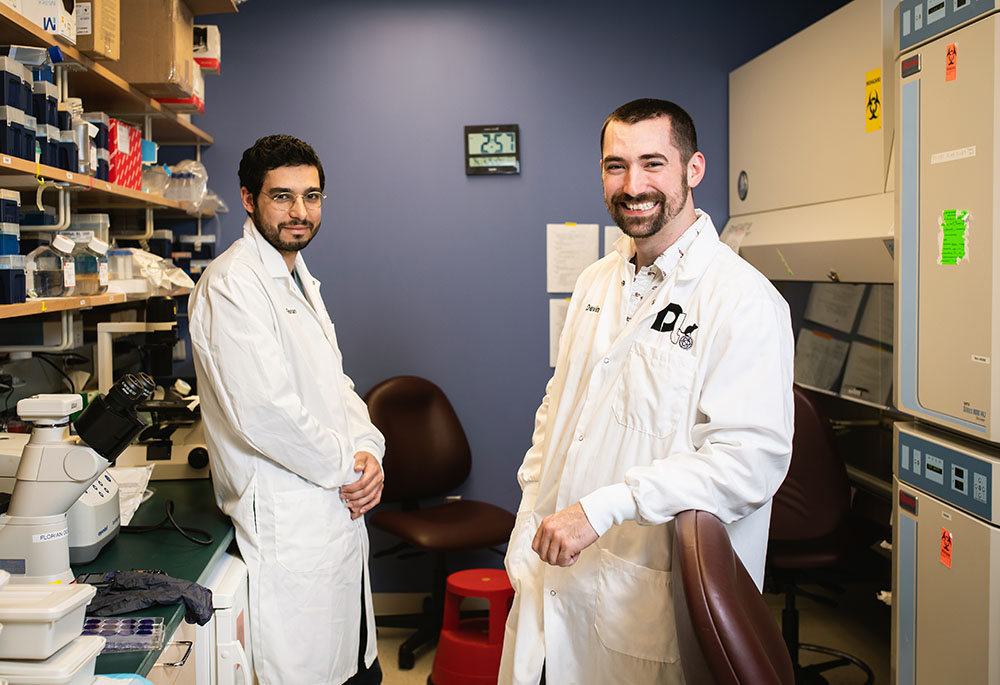A team of researchers at Boston University’s National Emerging Infectious Diseases Laboratories and Princeton University may have discovered why some develop severe symptoms from COVID-19, and why others don’t.
In a study published in Cell Reports, they suggest that those who escape the worst illness might have the right balance of immune cells called macrophages. Macrophages are crucial in wound repair. They digest anything that looks like it doesn’t belong in the body. But evidence has been growing that many COVID deaths are caused by macrophages attacking our bodies along with the virus, causing excessive inflammation and damaging heart and lung tissue.

“It’s not the virus itself that makes you critically ill, it’s an overreaction of the immune system,” says Florian Douam, a BU assistant professor of microbiology who co-led the study.
This work is challenging because researchers can’t access lung tissues from those who recover from infection. So, using sophisticated grafting, Devin Kenney (Chobanian & Avedisian'27,'27), a PhD student in the Douam Lab and lead author of the study, used a model that enabled a comparison of lungs that deflect SARS-CoV-2 with those damaged by it. He and the research team found a set of genes that determine whether immune cells mount a solid defense or wreak havoc in the body. The findings could help develop drugs that bolster our immune systems.
“If you can understand why most people are protected against COVID and how their body protects them,” Douam says, “then you could potentially harness this knowledge to develop therapeutics and other advances.”
